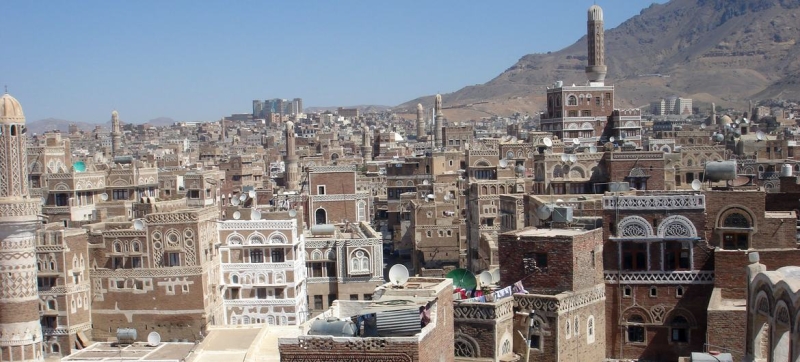
Old City in Sana’a. UN Security Council: Conflict involving Yemen is becoming increasingly internationalized Peace and Security
The conflict in the Middle East involving Yemen is becoming increasingly internationalized: the Ansar Allah group is intensifying attacks on Israel and continuing attacks in the Red Sea, which is causing retaliatory actions by the United States, Great Britain and Israel. This was stated by the Secretary-General’s Special Envoy for Yemen Hans Grundberg, speaking via video link at a meeting of the UN Security Council on Wednesday.
“I have spent much of the past year trying to protect Yemen from regional escalation and focusing on the very real possibility of resolving the Yemeni conflict,” the special envoy said. “Yet the situation is not getting any better.”
Grundberg recalled that recent Israeli airstrikes have caused significant damage to critical civilian infrastructure, including the port of Hodeida and Sana’a International Airport. This damage undermines the ability of the UN and other international organizations to unload humanitarian aid in Yemen.
“The UN has been resolute and consistent in its message: civilians and civilian infrastructure must never be targeted, be it in Yemen, Israel or Gaza,” the envoy said. “Ongoing negotiations on a ceasefire in Gaza and the release of hostages offer hope that the opportunity for de-escalation will finally be realized.”
“Difficult but always frank discussions”
Hans Grundberg said he continued to engage actively with Yemeni, regional and international parties, holding “sometimes difficult, often constructive and always frank discussions” during visits to Muscat, Sana’a, Tehran and Riyadh, in an effort to advance efforts to resolve the conflict peacefully. “My message to all interlocutors is always the same: we need immediate de-escalation and joint efforts for peace,” he stressed. “Almost forty million Yemenis have been waiting for this for a very long time.”
Hans Grundberg added that during his meetings with senior political and military officials in Sana’a, he urged Ansar Allah to immediately and unconditionally release all arbitrarily detained UN, national and international organisations, diplomatic missions and private sector personnel. “I trust that the Security Council will continue to unwaveringly support efforts to secure the unconditional release of those arbitrarily detained,” the Special Envoy added.
“Infrastructure must be preserved”
The past month has seen an alarming increase in attacks on critical civilian infrastructure, which millions of people depend on for electricity, safe movement and the import of essential food and medicine. This was reported by the UN Assistant Secretary-General for Humanitarian Affairs Joyce Msuya, speaking before the Security Council.
In particular, the port of Hodeida, a key crossing point for humanitarian supplies, fuel and commercial goods, is operating at approximately 30 percent of its capacity, according to current reliable estimates. Meanwhile, more than two-thirds of food and about 90 percent of all medicines and medical supplies for the population of Yemen are imported. The uninterrupted work of humanitarian workers, in turn, also depends on the situation in the seaports.
“The infrastructure that plays such an irreplaceable role in Yemen must be preserved,” Joyce Msuya emphasized.
